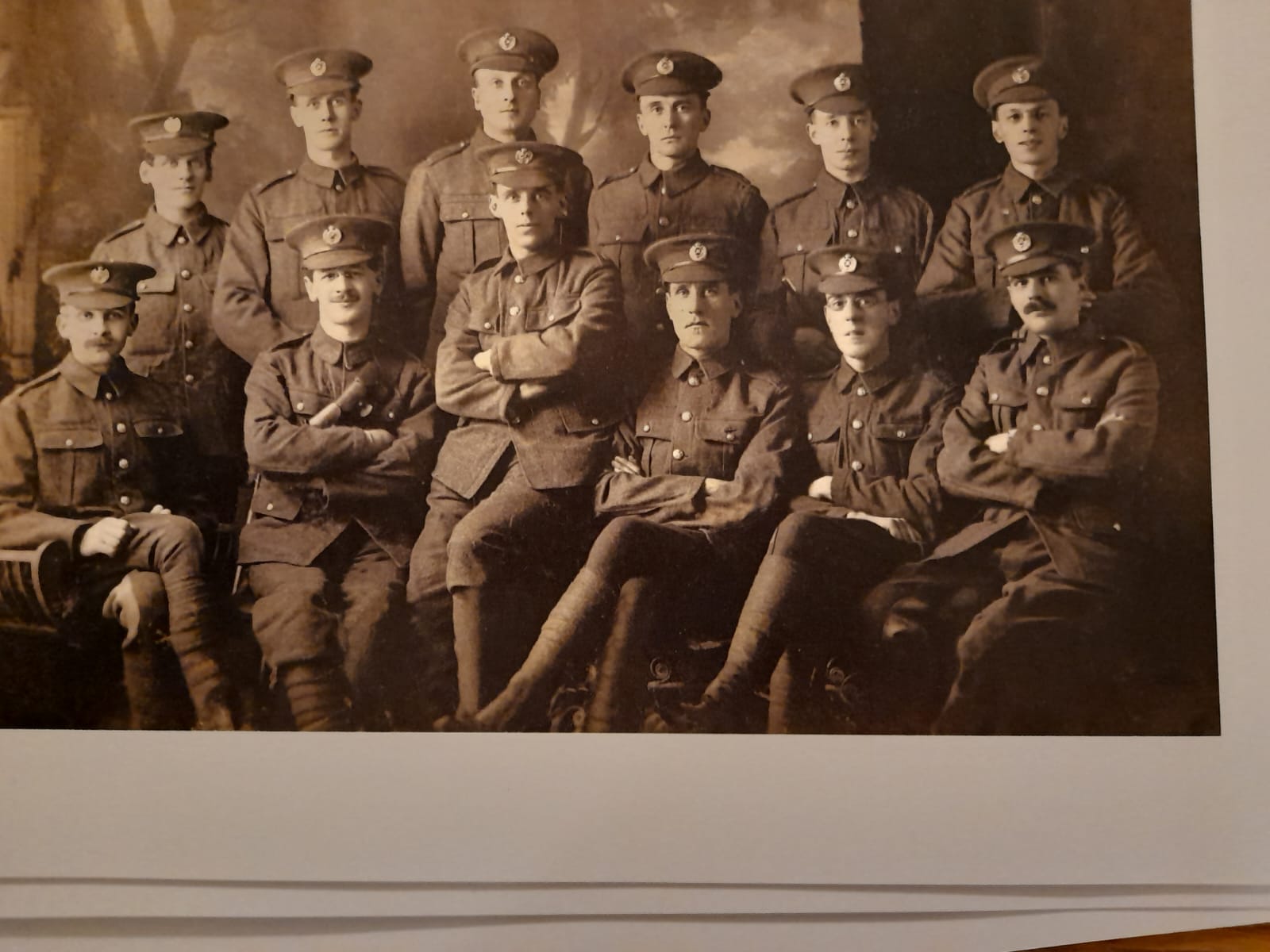Wearing a poppy isn’t political – it’s personal
It’s not a political statement; it’s not militaristic; it’s certainly not a suggestion that Britain’s cause in the Great War was a specifically righteous one, writes Ed Dorrell


Your support helps us to tell the story
From reproductive rights to climate change to Big Tech, The Independent is on the ground when the story is developing. Whether it's investigating the financials of Elon Musk's pro-Trump PAC or producing our latest documentary, 'The A Word', which shines a light on the American women fighting for reproductive rights, we know how important it is to parse out the facts from the messaging.
At such a critical moment in US history, we need reporters on the ground. Your donation allows us to keep sending journalists to speak to both sides of the story.
The Independent is trusted by Americans across the entire political spectrum. And unlike many other quality news outlets, we choose not to lock Americans out of our reporting and analysis with paywalls. We believe quality journalism should be available to everyone, paid for by those who can afford it.
Your support makes all the difference.On 2 June 1918, a pioneer in the Royal Engineers, one of millions of soldiers who were serving in the British Army at the time, was killed (almost certainly by shell fire) on the Western Front near Arras while out fixing an essential telephone cable.
Lance Corporal (acting) John Henry Whiting Dorrell, whose death left his three-year-old son fatherless, was my great grandfather.
His story would have been extraordinary but for it being one of thousands of similar tales of other brave young men from the same period.
Volunteering in 1915, “JHWD” (as he is known in our family) was eventually called up at the relatively old age of 28 in 1916. In 1917, he was sent to the Front where he contracted trench fever and was invalided back to Britain. The war seemed to be over, at least for him. But then came the unexpected German offensive in early 1918 and he was rushed back to France.
We have in our family possession the most melancholy grainy photo of my grandfather (aged three) smiling happily on his dad’s shoulders, not long before he left for France that last time.
JHWD might have been just one of millions of casualties, but he is also the reason I am absolutely guaranteed to be buying and wearing a poppy at this time of year. It’s not a political statement; it’s not militaristic; it’s certainly not a suggestion that Britain’s cause in the Great War was a specifically righteous one. It is simply an act of remembrance.
Indeed, I recognise that there are plenty of reasons why perfectly decent people might choose not to wear a poppy.
Some worry about being forced to make a public statement by an act of national conformity; others that the poppy has somehow been misappropriated to justify more recent wars such as the invasion of Iraq in 2003; still more that it is somehow an act of nationalism or national exceptionalism that makes them feel uncomfortable. None of these positions is completely misguided or offensive.
Indeed, poppies are only one way that this country remembers those who have were killed in service. This is true of my family too. On March 2015, on what would have been my grandfather’s 100th birthday, a veritable gaggle of Dorrells and friends made a trip to the very spot where JHWD was killed – and then onto his grave. It was quite the outing.
The last thing I would want to do is suggest that just because a direct relative was killed on the Western Front, we are in some way special. There are plenty of others who do not have the same connection, but who have every right to take part in acts of remembrance. What took place in Flanders and Northern France over those four years was, of course, a national tragedy.
But I can’t help but feel a tangible connection to the events of World War One that feels personal.
To keep up to speed with all the latest opinions and comment sign up to our free weekly Voices Dispatches newsletter by clicking here
And I would like to see that connection live on. There is an online meme that occasionally flickers into life about seemingly improbably direct connections to what seems like the dim and distant past. One of the most recent examples was an online video of the philosopher Bertrand Russell being interviewed on TV in the 1950s about how the man who had raised him, his grandfather, had met and talked to Bonaparte Napoleon.
Watching second hand accounts in 2022 of conversations that took place in the early 19th Century was extraordinary.
I have an ambition that my daughters (one of whom is also three) can perpetuate such an oral tradition in our family. It might be outlandish but maybe in 2093, 175 years on from 1918, you’ll find them sitting down with their grandchildren and telling them about how their great great grandfather waved his dad off to the Western Front.
I do hope they’ll remember.
Join our commenting forum
Join thought-provoking conversations, follow other Independent readers and see their replies
Comments